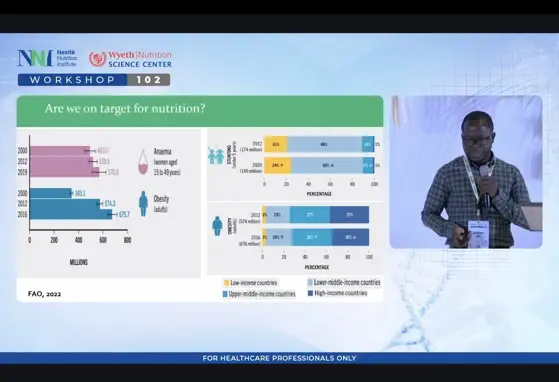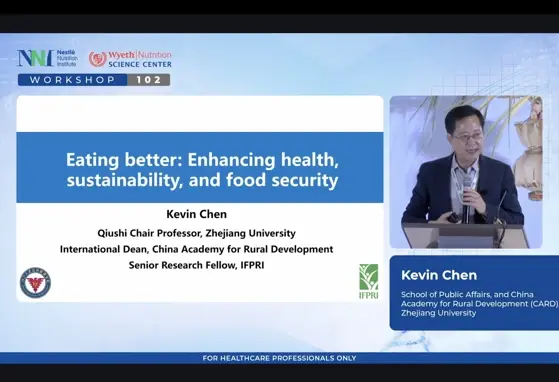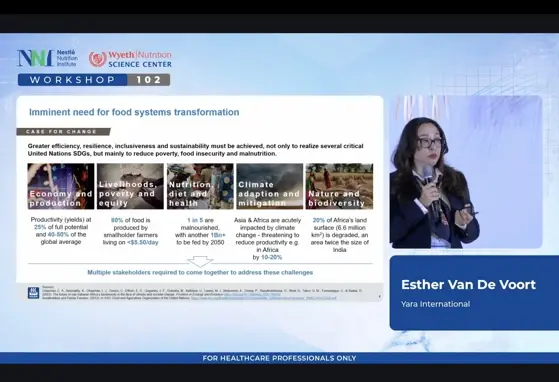New Definition and Guiding Principles for Sustainable Healthy Diets
In autumn 2019, the Food and Agriculture Organization of the United Nations (FAO) and the World Health Organization (WHO) released new definition and guiding principles for Sustainable Healthy Diets. They take a holistic approach to diets, including nutrient recommendations and nutrient intake goals, and consider the 3 pillars of sustainability: environmental, social/cultural and economic sustainability. This guidance comes at a time when the debate around the sustainability of diets is high on the agenda of many governments, international organisations, civil society organisations, the private sector and academia.
Malnutrition in all its forms such as undernutrition and overnutrition, and diet-related, non-communicable diseases (NCDs), as well as the degradation of environmental and natural resources are amongst the major challenges of our times. All these problems are happening at an accelerated pace and need to be addressed. The consequences of malnutrition include avoidable ill health and premature death, as well as enormous economic and societal costs. To address malnutrition, not only diets must improve but also the entire food system – ranging from production, aggregation, processing and packaging, distribution, marketing, consumption and disposal of food products. Simultaneously, current food systems are a leading cause of environmental degradation and depletion of natural resources. They are responsible for a significant share (20%-35%) of greenhouse gas emissions and are a major driver of land conversion, deforestation and loss of biodiversity.
Hence, there is an urgent need for Sustainable Healthy Diets which have been defined by FAO and WHO as dietary patterns that promote all dimensions of individuals’ health and well-being; have low environmental pressure and impact; are accessible, affordable, safe and equitable; and are culturally acceptable. The aims of Sustainable Healthy Diets are to:
- Achieve optimal growth and development of all individuals and support functioning and physical, mental and social well-being at all life stages for present and future generations;
- Help prevent all forms of malnutrition (i.e. undernutrition, micronutrient deficiency, overweight and obesity);
- Reduce the risk of diet-related NCDs;
- Support the preservation of biodiversity and planetary health.
Moreover, 16 guiding principles, set out by the FAO and the WHO, emphasise the role of food consumption and diets in contributing to the achievement of the Sustainable Developmental Goals at country level, especially the following goals: 1 (No Poverty), 2 (Zero Hunger), 3 (Good Health and Well-Being), 4 (Quality Education), 5 (Gender Equality), 12 (Responsible Consumption and Production) and 13 (Climate Action).
Together with several proposed actions for the implementation of Sustainable Healthy Diets, these guiding principles help create a common understanding of issues and opportunities that all stakeholders in the public and private sectors can address together.
Reference: FAO and WHO. 2019. Sustainable healthy diets – Guiding principles. Rome.
Link: http://www.fao.org/3/ca6640en/ca6640en.pdf
If you liked this post you may also like

Food, planet and health: A complex equation to solve

Eating better: Enhancing health, sustainability, and food security

Digital Agriculture: New frontiers for the food system

Round Table: Healthy growth within a healthy planet